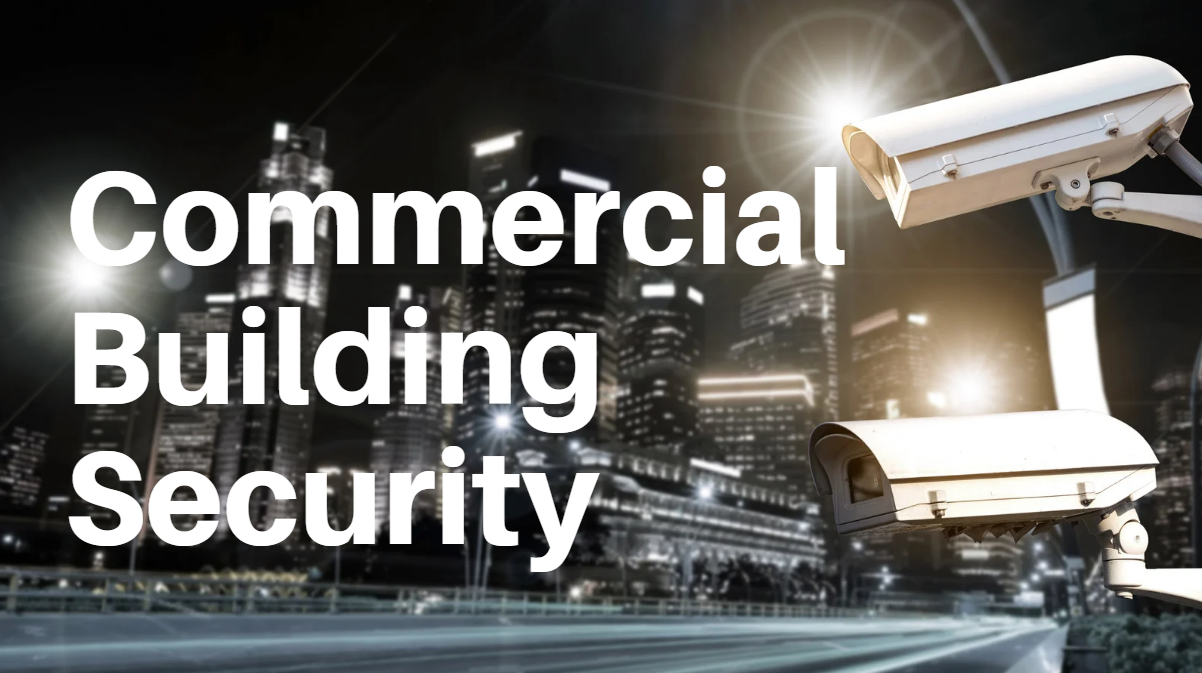In today’s fast-paced business world, security is no longer optional—it’s essential. From break-ins and vandalism to cyber threats, commercial buildings face increasingly sophisticated risks every day. Every business, whether it’s a retail store, office complex, or warehouse, has valuable assets, sensitive data, and employees that need protection.
Investing in reliable commercial building security systems is one of the most effective ways to safeguard your property, enhance workplace safety, and preserve your company’s reputation. This article will guide you through the key security technologies every business owner should know, how to select the right solutions, and best practices for professional installation. By the end, you’ll have the knowledge to create a secure and resilient environment—because your business deserves peace of mind.
Why Commercial Building Security Systems Are Important
Commercial security systems play a critical role in protecting businesses from physical and digital threats. Here’s why every business owner should prioritize security:
1. Protect Physical Assets
Buildings, inventory, equipment, and cash are all vulnerable without adequate security measures. A robust system ensures that only authorized personnel can access sensitive areas, reducing the risk of theft or damage.
2. Safeguard Employees and Customers
Workplace safety is not just a legal requirement—it’s a moral one. Security systems like surveillance cameras, controlled access points, and panic alarms help create a safe environment, reducing the likelihood of incidents that could harm staff or visitors.
3. Reduce Liability and Insurance Costs
Insurance providers often reward businesses with comprehensive security measures by offering lower premiums. A well-documented security system can also provide evidence in case of claims, limiting liability.
4. Deter Criminal Activity
The mere presence of cameras, alarms, and access control systems is often enough to discourage break-ins or vandalism. Intruders tend to target buildings with minimal security, so visibility is a strong deterrent.
5. Improve Operational Efficiency
Modern systems don’t just protect—they streamline operations. Access control logs, employee tracking, and remote monitoring allow business owners to manage operations efficiently while ensuring compliance with internal protocols.
Key Components of Commercial Building Security Systems
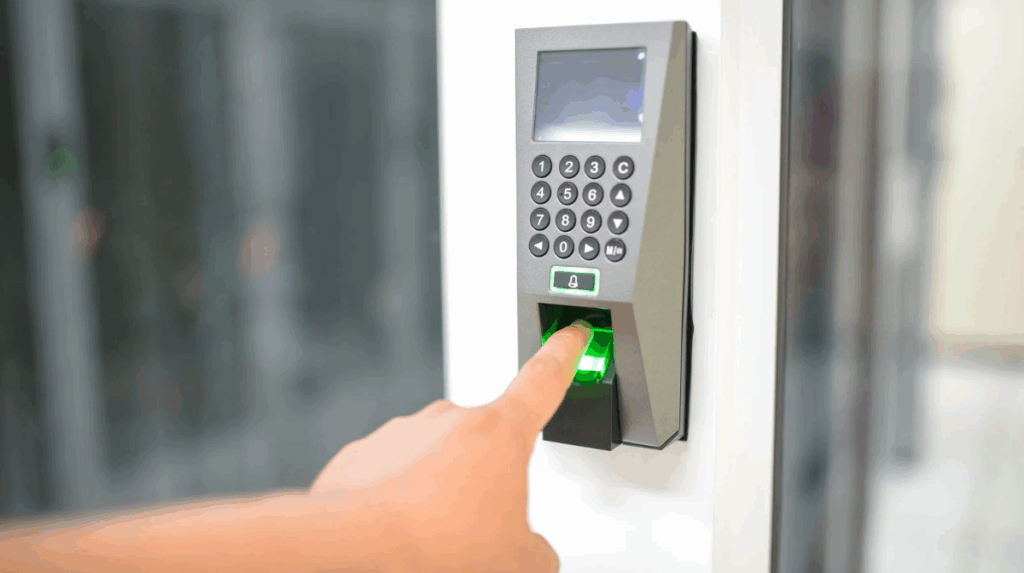
Understanding the components of a commercial security system helps business owners make informed decisions. The main components include:
1. Access Control Systems
Access control is the backbone of any security strategy. It regulates who can enter specific areas, at what times, and under what conditions. Common solutions include:
- Keycards and Fobs: Simple, reliable, and easy to manage for employees.
- Biometric Systems: Fingerprint or facial recognition provides higher security for sensitive areas.
- Mobile Credentials: Smartphone apps that replace traditional keys, allowing remote access management.
2. Surveillance Systems
Video monitoring deters criminal activity and provides crucial evidence in case of incidents. Features to consider:
- CCTV Cameras: Offer continuous monitoring of entrances, exits, and high-traffic areas.
- IP Cameras: Connect over the internet for remote viewing and cloud storage.
- Advanced Analytics: AI-powered cameras can detect unusual behavior, track movement, or alert to unauthorized presence.
3. Intrusion Detection Systems
Alarms and sensors detect unauthorized activity within the building. Key types include:
- Door and Window Sensors: Trigger alerts when openings are breached.
- Motion Detectors: Detect movement in restricted areas.
- Glass Break Sensors: Ideal for retail spaces and areas with large windows.
4. Environmental Monitoring
Protecting your business extends beyond theft. Environmental hazards can disrupt operations:
- Fire and Smoke Alarms: Early detection can prevent major losses.
- Flood and Water Sensors: Particularly useful in basements, storage areas, or locations prone to leaks.
- Temperature and Humidity Monitors: Protect sensitive equipment, products, or records from environmental damage.
5. Cybersecurity Integration
Modern security systems are increasingly connected to networks and the internet. While this offers convenience, it also introduces risks:
- Networked Security Devices: Require secure configurations to prevent hacking.
- IoT Security: Ensure that all connected devices, from cameras to access points, follow cybersecurity best practices.
By combining these components, businesses create layered protection that addresses both physical and digital threats.
Considerations for Choosing the Right Security System
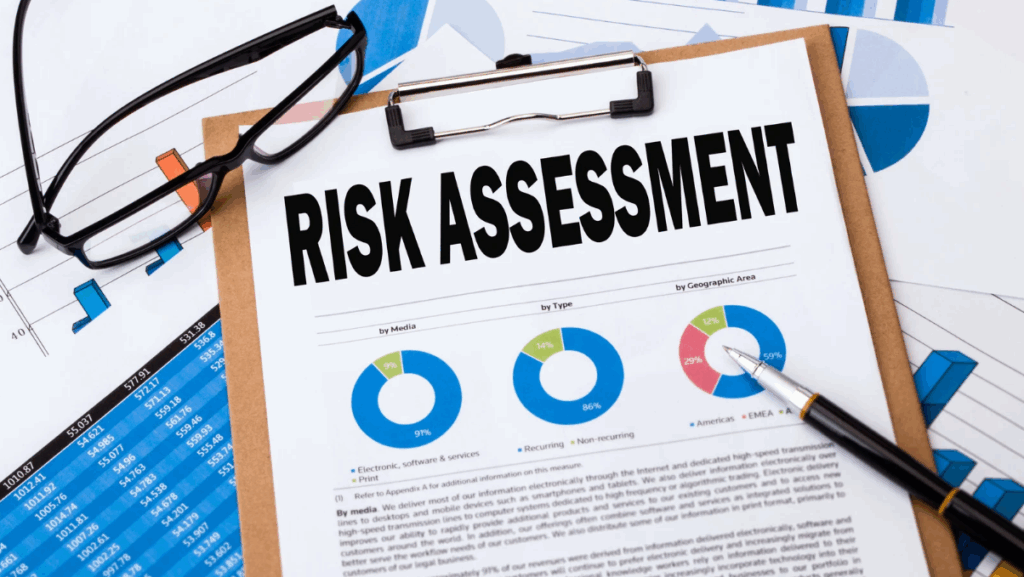
Choosing the right commercial building security systems requires balancing security needs, budget, and long-term value. Here are key factors to consider:
1. Business Size and Layout
The scale of your building and its layout directly influence the type of system required. Large facilities may need multiple access zones, high-resolution cameras, and networked monitoring, while small offices might only need a few cameras and a keycard system.
2. Risk Profile and Threat Level
Evaluate your business environment:
- High-crime areas may require advanced surveillance, biometric access, and 24/7 monitoring.
- Retail spaces with valuable inventory might need anti-theft alarms and smart cameras.
3. Integration with Existing Technology
Modern systems can integrate with your existing IT infrastructure, security software, and even smart building systems. This ensures centralized control and reduces complexity.
4. Budget vs. Long-Term Value
While high-end systems are more expensive upfront, they often save money in the long run by reducing losses, insurance premiums, and downtime. Consider both initial costs and ongoing maintenance.
5. Scalability and Future-Proofing
Choose a system that can grow with your business. Modular systems allow you to add cameras, sensors, or access points without replacing the entire setup.
6. Regulatory and Compliance Requirements
Some industries, like healthcare or finance, have strict regulations regarding data protection and building access. Ensure your security system meets these standards to avoid penalties.
Planning a Commercial Building Security Systems Installation

A successful installation begins with careful planning. Steps include:
1. Conduct a Security Audit and Risk Assessment
Identify vulnerable areas, employee movement patterns, and high-value assets. This assessment guides the choice of devices, placement, and monitoring needs.
2. Design System Layout and Coverage Zones
Plan where cameras, sensors, and access points will be installed. Ensure all critical areas are monitored while avoiding unnecessary redundancy.
3. Hardware and Software Selection
Select devices that are compatible, reliable, and scalable. Consider factors such as video resolution, alarm response times, and integration with mobile or cloud systems.
4. Installation Timeline and Minimizing Disruption
Coordinate installations during off-hours if possible to minimize disruption to business operations. A well-organized schedule ensures smooth deployment without affecting productivity.
5. Testing, Training, and Ongoing Maintenance
After installation, rigorously test every component to ensure functionality. Train staff on access control, alarm response, and reporting procedures. Schedule regular maintenance to prevent failures and prolong system lifespan.
Which Industries Gain the Most from Commercial Security Systems
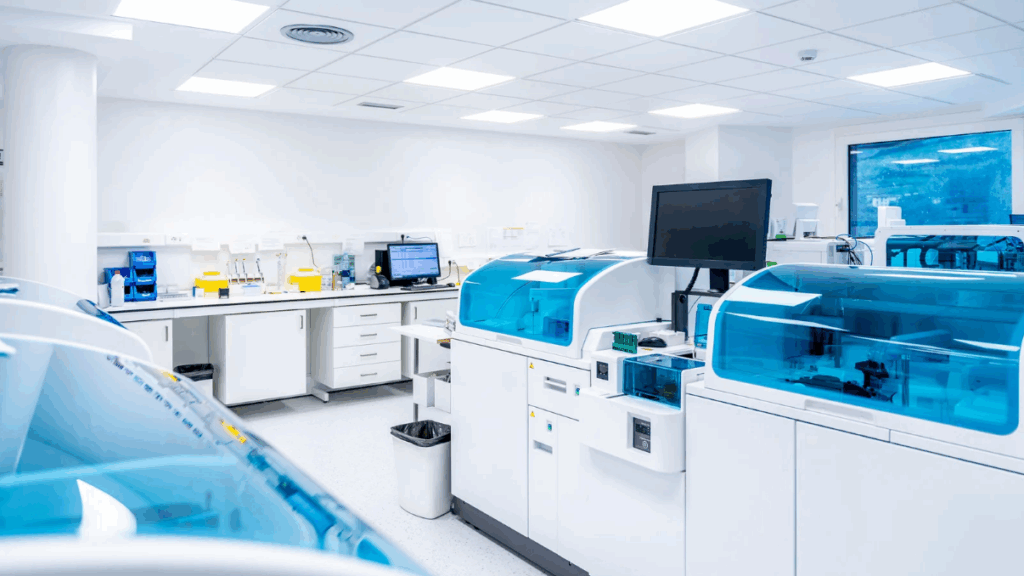
While all businesses can benefit from enhanced security, certain industries face higher risks or stricter compliance requirements. Understanding which industries gain the most from commercial building security systems helps business owners prioritize solutions effectively.
1. Retail
Retail businesses handle large volumes of inventory and cash daily, making them prime targets for theft, shoplifting, and vandalism. Security cameras, point-of-sale monitoring, and access control for stockrooms protect both assets and staff. Advanced analytics can even detect suspicious behavior before it escalates.
2. Healthcare Facilities
Hospitals, clinics, and laboratories must protect patient records, medications, and medical equipment. Regulatory requirements such as HIPAA also mandate strict access control and data protection. Surveillance systems, controlled access to sensitive areas, and alarm monitoring help ensure compliance and safety.
3. Financial Institutions
Banks, credit unions, and investment offices manage significant cash and sensitive financial information. Security systems such as biometric access, high-definition cameras, motion detectors, and alarm systems reduce the risk of robberies, fraud, and data breaches.
4. Warehousing and Logistics
Warehouses and distribution centers store large inventories, making them vulnerable to theft, tampering, and employee misconduct. Access control, perimeter surveillance, and environmental monitoring (for fire or temperature-sensitive goods) are essential for safeguarding operations.
5. Educational Institutions
Schools, colleges, and universities must protect students, staff, and valuable assets like computers and lab equipment. Security cameras, visitor management systems, and controlled access to certain buildings or classrooms ensure a safe learning environment.
6. Office Buildings and Corporate Campuses
Corporate facilities house employees, sensitive information, and expensive equipment. Security systems help manage visitor access, monitor communal areas, and prevent unauthorized entry to confidential spaces. Integration with cybersecurity measures also protects intellectual property.
7. Hospitality and Entertainment
Hotels, restaurants, and entertainment venues experience high foot traffic, requiring a balance between security and guest experience. CCTV, access control for staff areas, and intrusion detection systems help maintain safety without disrupting operations.
In essence, almost every industry benefits from security measures tailored to its unique risks and regulatory obligations. By identifying specific vulnerabilities and potential threats, business owners can design a security system that maximizes protection while enhancing operational efficiency.
Partnering with Security Professionals

While DIY systems are available, partnering with certified security providers offers significant advantages:
1. Expertise and Custom Solutions
Professional companies assess your unique needs, design a system that fits your layout, and recommend the best technology for your risk profile.
2. Reliability and Support
Certified providers offer installation, ongoing maintenance, and monitoring services. This reduces downtime, ensures proper operation, and provides peace of mind.
3. Compliance and Certifications
Professionals understand regulatory requirements and can ensure your system meets local, state, and industry standards.
4. Upgrades and Scalability
A reliable partner helps you future-proof your system. As your business grows or technology evolves, they can upgrade components without disrupting operations.
5. Cost-Effectiveness
While hiring professionals may seem costly initially, the investment often saves money by preventing losses, reducing insurance premiums, and extending system lifespan.
Choosing the right security partner ensures your business is protected by the latest technology, installed correctly, and maintained for optimal performance.
Securing Your Business Starts Today
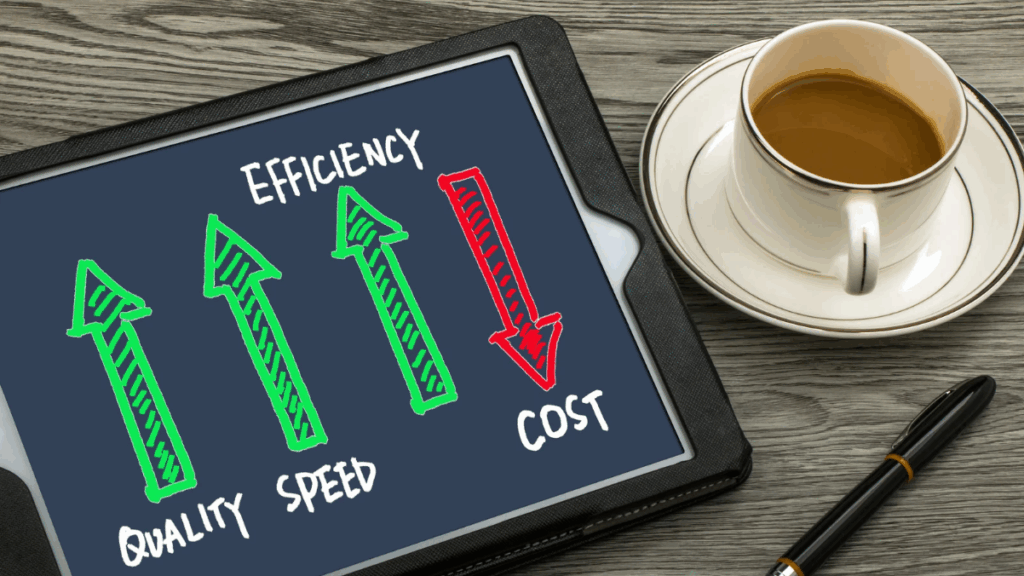
Securing your commercial building is no longer optional—it’s essential. From protecting physical assets and employees to safeguarding sensitive information, a robust security system provides peace of mind and operational efficiency. Understanding the key components of commercial security—access control, surveillance, intrusion detection, environmental monitoring, and cybersecurity—empowers business owners to make informed decisions. Considering your risk profile, business size, and future needs ensures the system you choose delivers long-term value, while careful planning and professional installation maximize effectiveness.
Partnering with certified security providers like Efficient Lowvolt Solutions in Columbus, Ohio, takes the guesswork out of protecting your business. Our team specializes in designing and installing comprehensive commercial security and access control systems, including advanced surveillance cameras, access management solutions, intrusion detection, and ongoing maintenance. By providing customized solutions that safeguard assets and streamline operations, we help business owners focus on growth with confidence. Contact us at 614-394-6233 to take the next step toward securing your business today.

